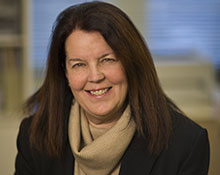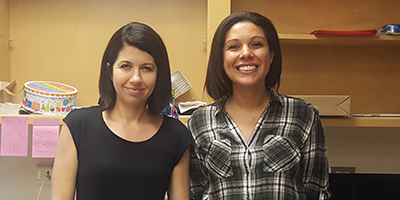
Triple Your Impact This Holiday Season
Triple Your Impact This Holiday Season
Celebrate the holidays with a year-end gift that can go 3x as far to help provide care and support to the millions affected by Alzheimer's disease, and to advance critical research. But please hurry — this 3x Match Challenge ends soon.
Donate NowDr. Reisa Sperling
One of the world’s leading Alzheimer’s researchers, neurologist Dr. Reisa Sperling is a renowned professor at Harvard Medical School. As director of the Alzheimer Research and Treatment at Brigham and Women’s Hospital in Boston, the Director of the Neuroimaging Core at the Massachusetts Alzheimer’s Disease Research Center (ADRC) at Massachusetts General Hospital and primary investigator of the groundbreaking A4 study, Dr. Sperling is a pioneer in the field, having mentored other women who have chosen to dedicate their lives to dementia science.Dr. Marilyn Albert
As a recipient of the Henry Wisniewski Lifetime Achievement Award in Alzheimer’s Disease Research at the Alzheimer’s Association International Conference (AAIC) 2019, Dr. Marilyn Albert was honored for making an impact on the field through her research and leadership, demonstrating her lifelong commitment to Alzheimer’s and dementia research. Director of the Division of Cognitive Neuroscience in the Department of Neurology at Johns Hopkins Hospital and the Director of the Johns Hopkins Alzheimer’s Disease Research Center, Dr. Albert's work has identified cognitive changes that occur with aging and early Alzheimer’s, as well as lifestyle factors that may preserve cognitive abilities during aging. Her current research focuses on early identification of Alzheimer’s and methods to monitor disease progression.
Director of the Division of Cognitive Neuroscience in the Department of Neurology at Johns Hopkins Hospital and the Director of the Johns Hopkins Alzheimer’s Disease Research Center, Dr. Albert's work has identified cognitive changes that occur with aging and early Alzheimer’s, as well as lifestyle factors that may preserve cognitive abilities during aging. Her current research focuses on early identification of Alzheimer’s and methods to monitor disease progression.Dr. Malu Tansey
In 2019, Tansey became the Director of the Center for Translational Research in Neurodegenerative Disease and the first endowed chair of the Norman Fixel Institute of Neurological Diseases at the University of Florida College of Medicine in Gainesville, Florida.
Dr. Beth Mormino
Always interested in science and math in school, Dr. Beth Mormino is now the principal investigator of the Mormino Lab at Stanford Medicine. As an undergraduate student, Dr. Mormino had the opportunity to use brain imaging technologies, learning how to explore the brain and how it works. This work ultimately put her on the path to neuroscience. “How can we combine our imaging discoveries with other data to predict risk of developing Alzheimer’s? That is a question I want to answer,” Mormino says. She counts herself lucky to have had exposure to very successful women in her field, including Dr. Reisa Sperling, who she worked under during her postdoctoral training. “Women are curious, driven, intelligent and have an amazing team-building approach to their work," Mormino says. "All of these qualities make for a terrific scientist. I think it’s just a matter of time before the gender norms and expectations of the past wash away.”
She counts herself lucky to have had exposure to very successful women in her field, including Dr. Reisa Sperling, who she worked under during her postdoctoral training. “Women are curious, driven, intelligent and have an amazing team-building approach to their work," Mormino says. "All of these qualities make for a terrific scientist. I think it’s just a matter of time before the gender norms and expectations of the past wash away.”Dr. Kacie Deters
Working alongside Dr. Beth Mormino is Dr. Kacie Deters, who first became exposed to dementia research when she started her master’s degree in biology. Dr. Deters is very interested in racial and ethnic disparities in Alzheimer’s. “In Beth’s [Dr. Mormino's] lab, I’ve been able to put 100% of my drive to research into practice.”An Alzheimer’s Association funded researcher [2018 Alzheimer’s Association Research Fellowships to Promote Diversity], Deters is passionate about encouraging young women to develop their interest in the sciences early on and not to downplay their abilities. “In my experience, women seem to doubt their accomplishments or question their success more than their male counterparts. Fight the imposter syndrome!”
These women profiled above are just some of the remarkable scientists making their mark in the world of Alzheimer’s and dementia research. In celebration of equality days like International Day of Women and Girls in Science, let’s continue to look to the women pushing the field forward, and the girls who will be the next to take on the challenges and landmarks of dementia science.
Here are the female scientists leading the work of the Alzheimer’s Association:
Dr. Maria Carrillo
Dr. Rebecca Edelmayer
Dr. Claire Sexton
Dr. Heather Snyder
